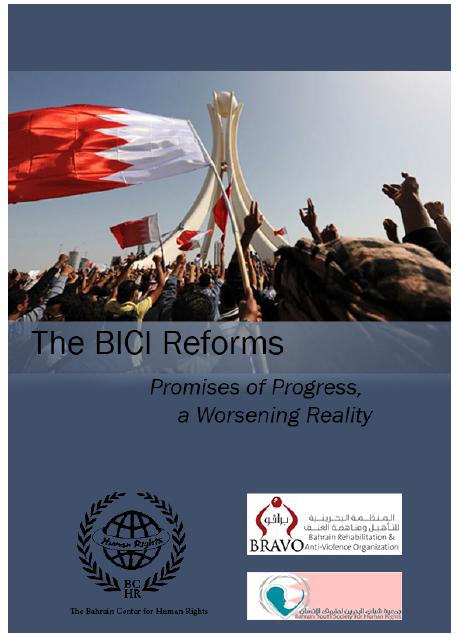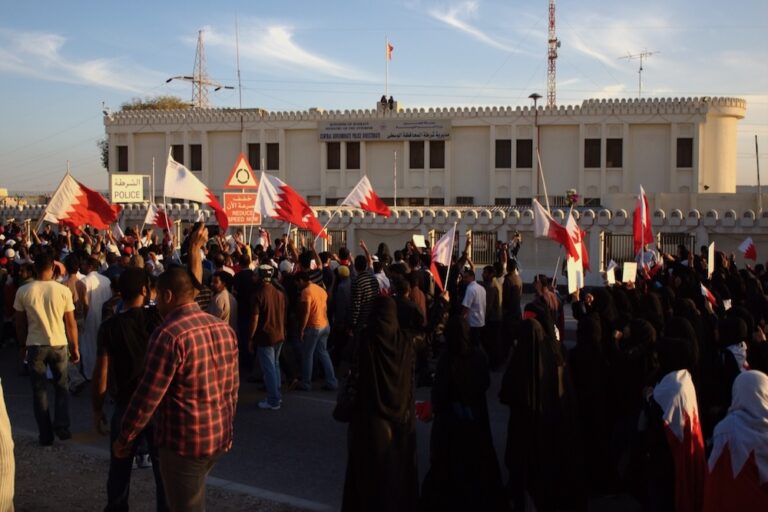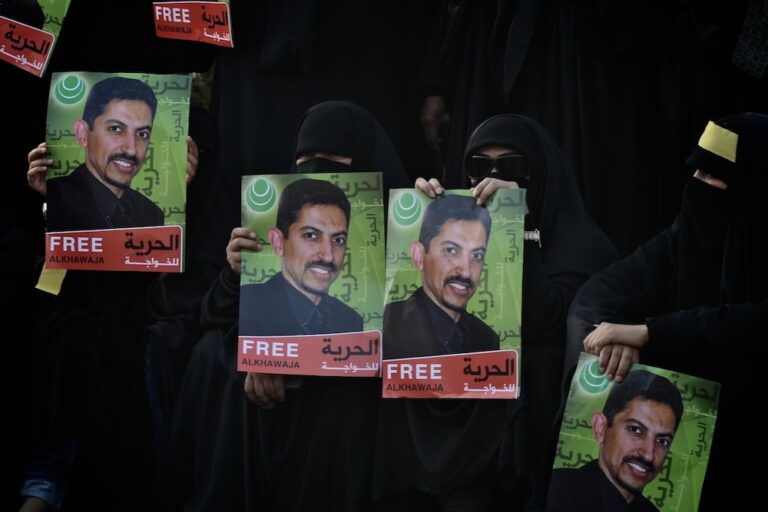Almost a year after the Bahrain Independent Commision of Inquiry published a report on events in Bahrain in February and March 2011 and providing recommendations for the future, human rights violations continue, say local rights groups.
(BCHR/IFEX) – 19 November 2012 – The BICI Reforms: Promises of Progress, a Worsening Reality, a report issued by the Bahrain Center for Human Rights (BCHR) in conjunction with the Bahrain Rehabilitation & Anti-Violence Organization (BRAVO) and the Bahrain Youth Society for Human Rights (BYSHR), evaluates the progress that has been made by the Government of Bahrain towards reforming its record of human rights violations, and marks the one year anniversary of the recommendations presented by the Bahrain Independent Commission of Inquiry (BICI).
The BICI report is a scathing critique of the authorities’ behavior in the months following the start of the pro-democracy demonstrations in February 2011. It found that torture, extrajudicial killings, and warrantless arrests were common practice in Bahrain. Specifically in regards to the raids on homes and arbitrary arrests, the BICI report found that these operations involved “unnecessary excessive force, accompanied by terror-inspiring behaviour on the part of the security forces in addition to unnecessary damage to property” and that “the very fact that a systematic pattern of behaviour existed indicates that this is how these security forces were trained and how they were expected to act. This could not have happened without the knowledge of higher echelons of the command structure of the MoI [Ministry of Interior] and NSA [National Security Apparatus].” It was never clearer that human rights abuses were a deeply rooted problem within the government.
The King’s promise that he would implement sweeping reforms to address these violations was initially met with a cautious degree of optimism by the authors of this report and many governments and NGOs around the world. Swift and earnest reforms could have represented a strong step forwards towards national reconciliation. One year later, the government has had ample time to act, but has, in general, only made superficial progress. Today, we look at Bahrain and see a government that puts its efforts into presenting the image of reforms, while continuing to commit the same human rights violations; in certain respects, the situation has grown worse.



